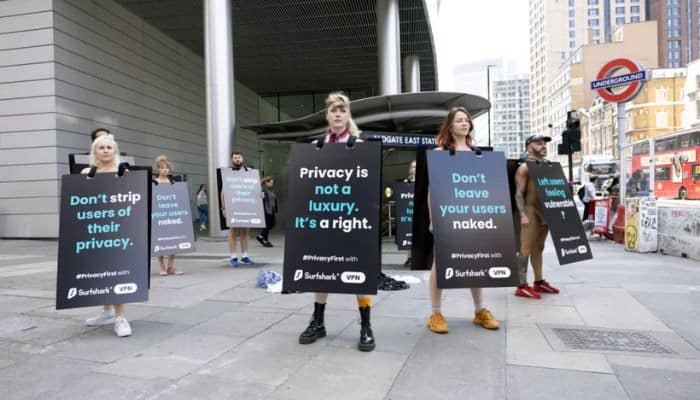London, United Kingdom – Cybersecurity company Surfshark has recently ran a thought-provoking campaign on the streets of London. The campaign featured individuals wearing signs instead of clothes, urging social media giants to prioritise privacy and stop leaving their users feeling ‘naked’.
The signs read “Don’t strip users of their privacy” and “Don’t leave your users naked”. The campaigners visited several busy areas across London, including the offices of major tech companies, to amplify their message.
‘Naked People’ raises awareness about social media security practices and the exploitation of user data. Surfshark’s mission is clear: safeguard individuals’ online identities and empower them to regain control of their personal information.
IIt is worth noting that Europe’s General Data Protection Regulation (GDPR) was expected to change invasive data collection practices with strict regulation and high fines. However, the huge increase in fines given to top social media platforms for GDPR violations shows that user data protection is still a pressing concern. Moreover, Facebook, Instagram, TikTok, and other big platforms — are all fined for mishandling user data.
Goda Sukackaite, privacy counsel at Surfshark, said, “An analysis of GDPR fines shows that the media, telecommunications, and broadcasting sector is the most heavily fined sector overall. Notably, the top social media companies, which are the largest data collectors, have also received the highest fines.”
She added, “Such penalties demonstrate the imperative to hold major social media players accountable for their data handling practices, ensuring that the privacy and safety of all users is given the utmost consideration and care.”
To highlight these alarming statistics, London’s vibrant and influential landscape offered the perfect setting to spark critical conversations around privacy and challenge the current norms in the tech industry.



